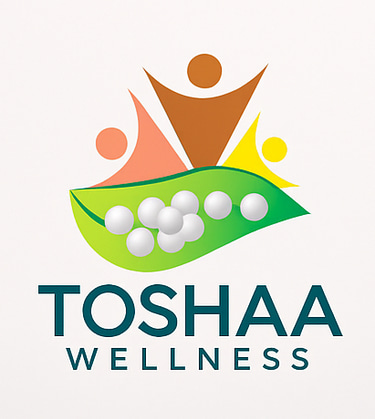The Enduring Legacy of Homeopathy: A Cultural Perspective


Homeopathy, the gentle yet profound system of medicine developed over 200 years ago by Dr. Samuel Hahnemann, continues to thrive and evolve, touching lives across continents. In an age of fast-paced medical advancements and ever-changing health paradigms, one might ask: How has homeopathy not only endured but also expanded its influence across cultures and generations?
As a practicing homeopath, I have seen firsthand the resonance this healing art has with people from all walks of life. But beyond the scientific principles and the individualized approach it offers, homeopathy’s survival has a deep cultural and philosophical grounding. Let's explore why this centuries-old practice has remained so culturally relevant and widely embraced.
🌍 1. Universality of Human Suffering and the Need for Gentle Healing
Regardless of geography, language, or lifestyle, pain and disease are part of the human condition. Homeopathy does not treat diseases as isolated entities—it treats the person as a whole, respecting their unique emotional, mental, and physical makeup.
In a world that often feels impersonal and rushed, people across cultures have gravitated toward homeopathy because of its gentleness. The idea that healing can occur without suppression or side effects appeals deeply to collective human wisdom that values harmony over force.
🏛️ 2. A Philosophical Foundation Rooted in Harmony
Many traditional healing systems across the globe—Ayurveda, Traditional Chinese Medicine, Indigenous healing practices—share a common belief: that true health arises from balance and inner harmony. Homeopathy’s fundamental principle of “like cures like” mirrors this age-old wisdom. It respects the body’s innate intelligence and uses minute, potentized doses to stimulate the body’s self-healing mechanisms.
This shared philosophical thread has allowed homeopathy to integrate effortlessly into diverse cultures. Whether in rural India, urban Europe, or South America, people recognize in homeopathy a healing language that echoes their traditional beliefs.
🕊️ 3. A Medicine of the People
One of the most beautiful aspects of homeopathy is its accessibility. Historically, it became popular not only through elite physicians but also through community practitioners, families, and midwives. Small homeopathy kits passed down generations—used to treat bruises, colds, fevers, or emotional trauma—created a grassroots familiarity with the system.
In countries like India, Brazil, Germany, and Cuba, homeopathy became not just an alternative, but a trusted part of family care and public health systems. It has been embraced by royalty and rural communities alike—a rare bridge between worlds.
💬 4. Healing Through Listening: A Cultural Need
In many healing traditions, the act of being heard is itself therapeutic. The homeopathic consultation, often lasting 45 minutes to an hour, honors this deep human need.
Unlike conventional models that often focus narrowly on symptoms, homeopathy listens to your story. This approach—where a practitioner seeks to understand the patient’s inner world, emotional history, fears, and dreams—is profoundly resonant across cultures where storytelling, emotions, and human connection are central to healing.
⏳ 5. Adaptability Through Generations
Over the last two centuries, homeopathy has continuously evolved without losing its core principles. From its early classical roots to its integration with modern tools and digital repertories, homeopathy has adapted without compromising its essence.
Today, people seek holistic care for stress, chronic illness, hormonal imbalances, autoimmune conditions, and even emotional trauma—areas where homeopathy continues to offer safe and individualized support.
In a time when the world is facing rising chronic illnesses, mental health challenges, and antibiotic resistance, homeopathy provides a sustainable, gentle, and effective model of care that is increasingly relevant.
🌱 6. Spiritual and Cultural Alignment with Modern Consciousness
There is a growing global shift toward natural living, mind-body integration, and conscious health choices. People are moving away from overly mechanistic views of the body and rediscovering the power of nature, subtle energies, and inner awareness.
Homeopathy aligns beautifully with this emerging consciousness. It encourages self-awareness, emotional healing, and respect for the body’s wisdom—qualities that resonate deeply with modern seekers across the globe, regardless of faith or background.
🧭 In Conclusion: A Cultural Healer for the Modern Soul
Homeopathy has not merely survived; it has flourished—because it speaks to something timeless in us. It honors the uniqueness of the individual, trusts the intelligence of the body, and recognizes the deep interconnection between mind, body, and spirit.
In an increasingly fragmented world, people are yearning for connection, compassion, and coherence. Homeopathy offers all three—not just as a medical system, but as a philosophy of healing that transcends cultures and unites us in our shared human journey toward wholeness.
Whether you are new to homeopathy or have used it for years, know this: You are part of a living, evolving tradition that has endured for over two centuries not by chance, but because it touches something essential, universal, and profoundly human.
